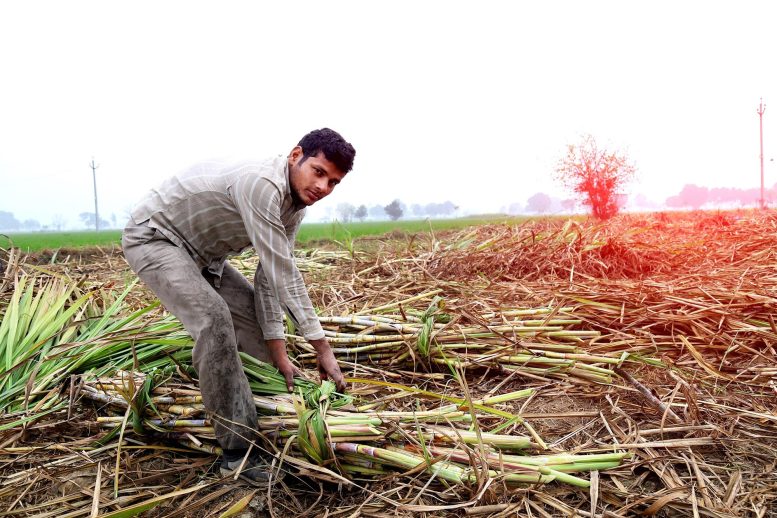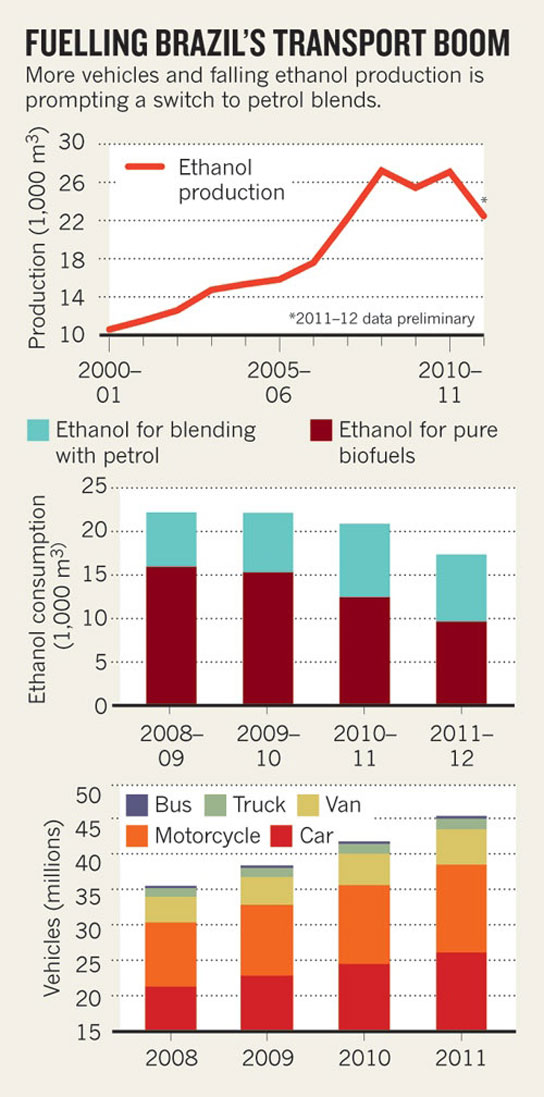
Brazil has struggled to sustain its production of biofuel from sugar cane.
Brazil experienced a biofuel boom in March 2007, topping out at second in world output behind the USA. The fermentation of sugars produced motor fuel that lowered carbon dioxide emissions, and Brazil became a model for how it was possible to stop relying on fossil fuels.
Five years later, biofuels have been criticized and critics charge that devoting millions of hectares of agricultural land to fuel crops is driving up food prices and the climate benefits of biofuels are modest. The policies of the Brazilian government have compounded the effects of the global economic downturn.
The domestic consumption of liquid ethanol in 2012 has been 26% lower than for the same period in 2008 and forty-one of Brazil’s roughly 400 sugar cane ethanol plants have closed during that span. The price of pure ethanol is so high that in most states it’s cheaper to fill up with petrol blends that contain 20% ethanol. The shift back to fossil fuels, combined with the rapid growth in the number of cars on Brazil’s roads, has worsened smog and caused emissions in the transport sector to spike.
Brazil’s ethanol experience is an example of what can happen when climate and energy planning clash with economic decision-making. Problems began with the 2008 economic crisis, which stalled new investments in the sector just as it was expanding rapidly. The industry fell back on harvesting cane from older, less productive sites instead of developing new plantations. Average yields plummeted from 115 tonnes per hectare in 2008 to 69 tonnes in 2012. This has forced Brazil to import 1.5 billion liters of maize ethanol from the USA in the last 2 years.

Infographic via Nature. Sources: Unicadata (top/centre); IEMA (bottom)
When the government decided to freeze the price of petrol and diesel in order to keep inflation under control, biofuels became less competitive. The federal fuel tax and fossil-fuel subsidies have since been promised to be reduced to zero and phased out by President Dilma Rousseff.
In the meantime, the government has tried to stimulate the economy by offering tax breaks on new cars. This, combined with the cost of ethanol, decreased alcohol in the transport fuel matrix from 55% in 2008 to 35% in 2012.
This situation is unsustainable, and the government has assured that petrol prices will go up next year and the blend of ethanol will rise from 20% to 25%, the maximum allowed by law. But it will take the industry time to bounce back, and ethanol will remain expensive for the next two years.
Today, Brazil is hoping to tap into a new biofuel source stemming from the tough cellulose in plant stalks. Cellulose is difficult to break down and ferment, but several facilities in the USA are on the verge of making commercial cellulosic ethanol by using specialized enzymes to break down cellulose.
Once this technology is mature, it could double fuel yield per hectare. However, researchers believe nothing will compete with sugar cane ethanol until 2050.









Be the first to comment on "Ethanol Production Stalls in Brazil"